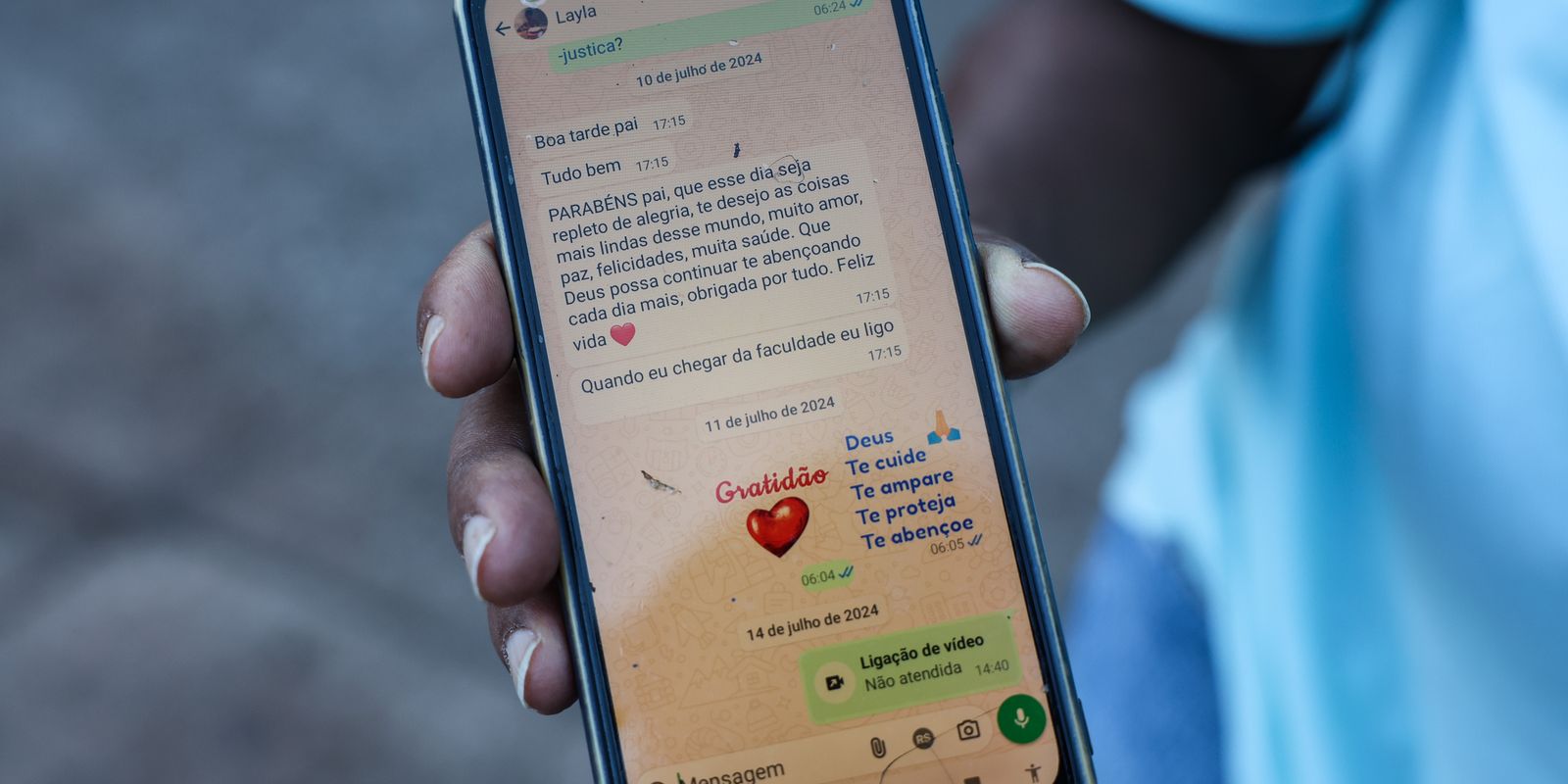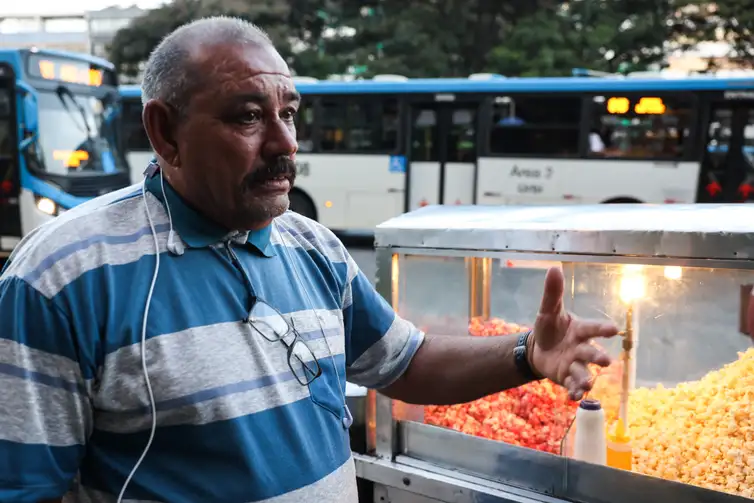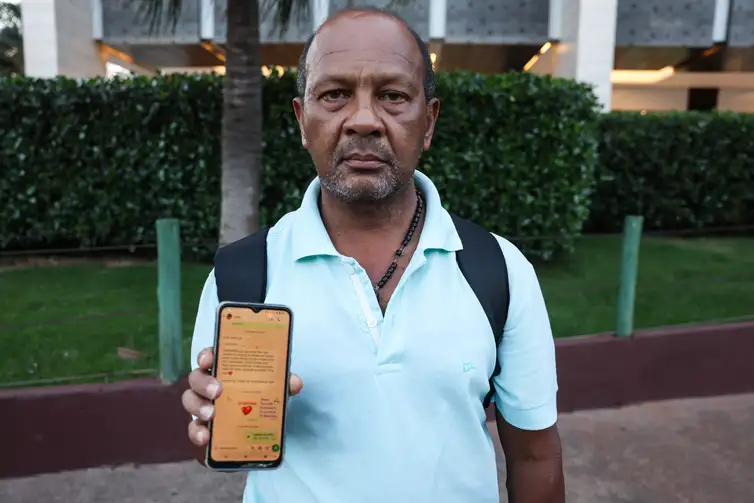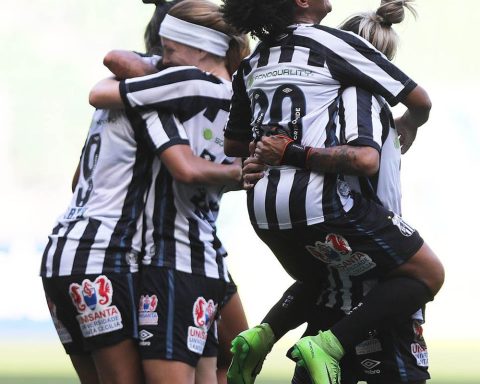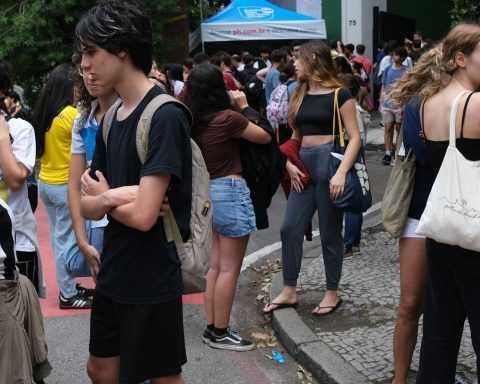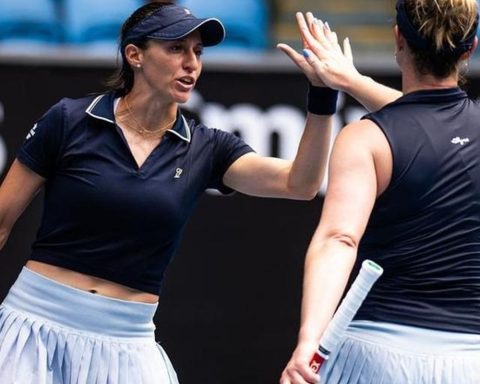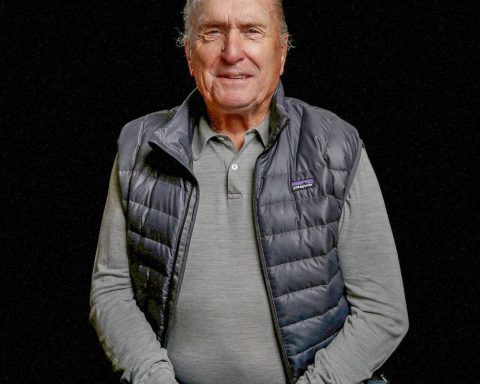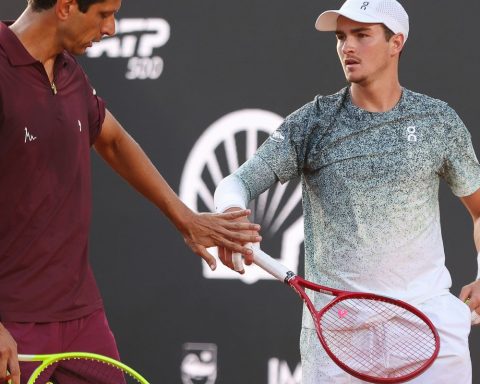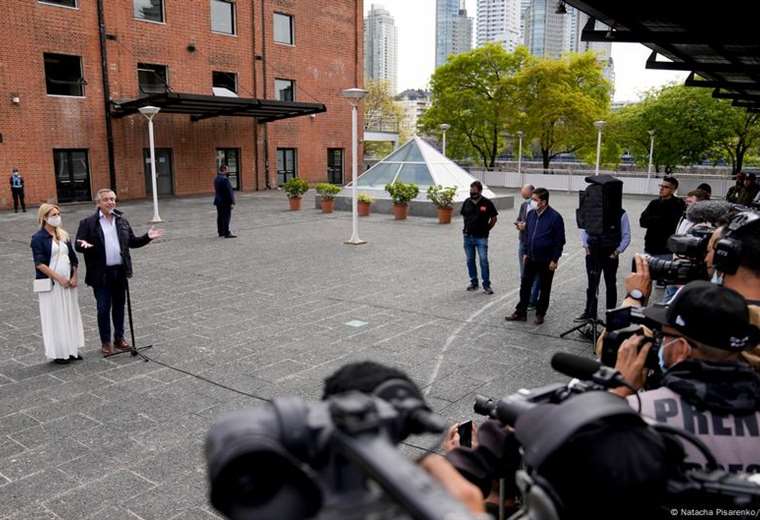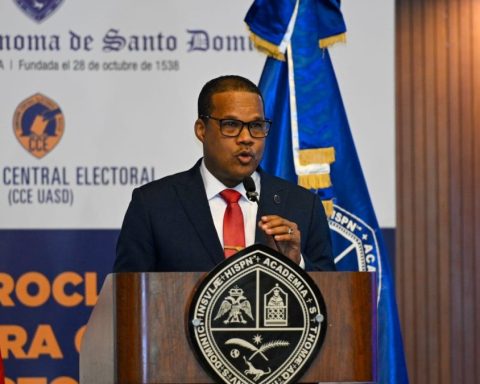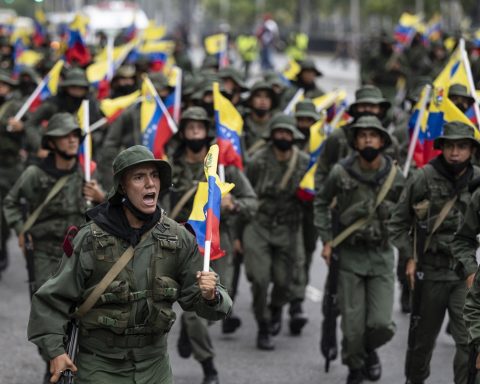“When I get home from college, I’ll call.” No message that arrives on his phone is trivial for Gil Lopes, a 58-year-old popcorn seller and father of six children. “Everything that comes from them is important.” The Rio Grande do Norte native, who lives in Brasília, keeps the earphones in his ear, through which he listens to audio messages and simple news about everyday life, a way of dealing with his longing, ever since the boys and girls started leaving home to move to another city and get married. He receives more messages than calls, but he doesn’t mind. “Their lives are busy,” he laments.
Standing in front of the popcorn cart, he says that cell phone technology is what gives him peace of mind while working. He only takes off his headphones to serve customers. The popcorn vendor, who lives in the administrative region of São Sebastião (DF), remembers that he used to be more concerned about what technology could cause. In fact, technology also affects active fatherhood.
According to researchers interviewed by Brazil Agencytechnological developments in cell phones and the Internet have changed family relationships in many ways, including between parents and children. One of these changes is positive, since technology has helped foster closeness, according to pediatric neurologist Eduardo Jorge Custódio da Silva, a member of the Digital Health Working Group of the Brazilian Society of Pediatrics (SBP).
“The father may be traveling and it is possible to see him via video. Technology can be essential. We have a website called Esse Mundo Digital, which aims to raise awareness about the ethical, healthy, safe and educational use of the internet,” he says.
Presence time
According to researcher Sandra Rúbia da Silva, a professor of postgraduate communication at the Federal University of Santa Maria (UFSM), parents need to find time to participate in activities with their children, whether online or off-screen.
“In my research, we were able to observe that parents see cell phone use as being linked to concerns about their children’s safety.” However, according to the researcher, children see the use of technology as an opportunity to use social networks, which have taken family relationships to “a new level, in many ways, both in terms of exchanging knowledge and especially in terms of affection,” says the professor. Using an anthropological approach, she investigates practices related to cell phone use in urban outskirts.
“See how many Father’s Day messages will be on social media this Sunday.” In fact, this leads to the phenomenon that fathers who are not honored with posts may end up hurt. “Let’s imagine, for example, a father and son who have grown apart. Technology can facilitate, for example, a rapprochement. It can, ultimately, restore or distance.
“Technology, in itself, does nothing. Moving away or moving closer has to do with human behavior.”
Too many screens
According to Professor Sandra Rúbia da Silva, from UFSM, parents need to be careful that when they are physically present, they are not “absent” and only connected to social media. Likewise, children should be invited to a world away from screens, according to pediatric neurologist Eduardo Jorge Custódio da Silva, from SBP.
He illustrates that it has become common to see parents and children (and even babies) with mobile devices at the same table. And not a word between them.
“This is a frightening image. The internet and screens can bring those who are far away closer together. And, in return, push those who are close apart.”
The neurologist is part of the group that prepared a scientific document for the entity entitled “Less Screens and More Health”, during the pandemic, and which should have a new version next year.
“It is very important that children, in their development, use touch: see, hear, taste, smell, hug, fall on the floor and live like children.”
Contact and risks
The doctor explains that physical contact and dialogue are essential. “Historically, parents have always been a little more distant in their relationship with their children. But that has changed. Being with the child is very important. And the screen cannot be the only way of mediating any contact.”
This absence can generate emotional risks in the construction of personality.
“It’s important to go out with the kids and leave your cell phone behind. Put your phone in a box for at least an hour. You need to create moments of ‘detox’.”
This includes, according to the SBP neurologist, for example, telling your child how your day was and hugging them whenever possible.
The neurologist warns that families need to be aware of the possibility of digital dependence in their children. “This is already a disease. Parental authority is important from the beginning of the process. We need to have authority, and children and adolescents want authority,” he points out. And this authority must be exercised, according to the experts interviewed, through dialogue. “Digital dependence is characterized by harm to social, academic or emotional life. Psychological support is needed, as well as family support.”
Approximation
Psychologist and professor Leila Cury Tardivo, from the University of São Paulo (USP), also reiterates that parents should use technology to get closer. As coordinator of a social service project in São Paulo, Apoiar, the researcher, since the pandemic, has noticed the need for children and adolescents to feel more supported. “Parents are not obligated to solve everything. But getting closer and talking helps a lot.” In active parenthood, for example, she advocates respecting the pains, doubts and insecurities specific to each age group.
The professor highlights that society lives in a context of different family structures, and active paternity participation is expected to face challenges.
“The father can be very important in his son’s life. He no longer has a defined place, but he needs to share responsibilities.”
This is what retired farmer and civil servant Américo Oliveira, 63, also believes. He is also the father of six children. A resident of a rural area in the administrative region of Gama (DF), he would wait for the bus to go home and would keep an eye on his cell phone waiting for any “hi” from his children.
The older ones left for urban areas and now have his wife and 11-year-old son at home. He tries to get the boy to play with his feet on the ground and with a ball. “Of course he asks for the phone to play games. But I’m happy that he also uses it to send me messages. It’s a daily struggle, but I like to sit next to him and talk about what he saw on the screen,” smiles the father.
